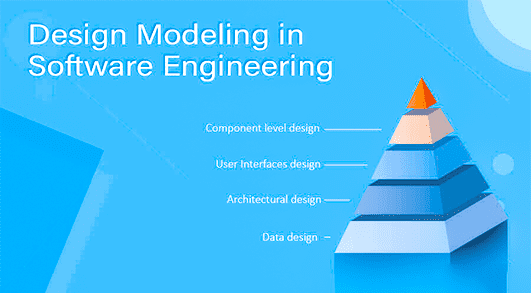Software Engineer or Computer Systems Engineer is a professional practitioner specializing in software engineering, one of the engineering disciplines that emerged in the early 1940s with the advent of the first digital computer in 1940. It applies scientific theories and algorithms, to implement or design IT solutions for various fields with in recognized safety and quality standards.
The software engineer must give a series of commands to the computer and produce different software, which is responsible for designing, developing and installing software solutions with a view to designing, building and creating high-quality software.
History of the software engineer profession
Software engineering was used as a theoretical concept occasionally in the late 1950s and early 1960s. The first official use of the term was at a conference held by NATO’s Scientific Committee on Software 1868, which has since become wide spread and has received increasing attention in various respects.

The conference was held to address the so-called “software crisis”, which emerged due to the lack of systematic thinking when building software program “, resulting in many errors during the process of building and maintaining the software, So the software has come to need a lot of time to be developed and maintained, and the cost of money is higher than it is guessed to be, After overdue and over-budgeted, the software was poorly efficient in delivering the required posts and lack of effectiveness by not fully meeting all requirements.
Software program
In software engineering, building a software system is not just writing a code, it is a production process that has several basic stages and is necessary to obtain the product, the software at the lowest possible cost and the best possible performance. These phases are called the life cycle of the software system, some of which may seem un related to programming.
A lot of perceptions and models in software engineering describe the software production process and the steps needed to do so. This course is also constantly being developed, where, in addition to classical courses, the flexible system concept has emerged that abandons the classical system’s consistent model for greater freedom of movement for the project.
Software Engineer’s Role in Projects
The software engineer works to implement technical solutions through a specific machine study, planning of the project’s sources in terms of human and technical resources and any other requirements within a specific budget provided that they do not compromise quality, security and privacy specifications and guarantee the ideal cost and the highest possible efficiency.
Although the optimal role of the software engineer is the project manager in small projects, depending on the size of the project, he/she may work within the task team in any of the tasks of the project after he/she has passed the appropriate training courses, the most important of which (IT Manager, Information Network Manager, Information Security Officer and Data base Officer).
Consulting & Design
The software engineer can design and monitor the implementation of technical solutions if he has the expertise and qualifications that enable him to do so. He usually has a third-level university degree “Master” or fourth “Doctorate” in software engineering, computer science or IT and a number of years of experience and training to register as a consultant in a professional union where he is qualified to provide a software engineering design.

In order to illustrate the difference between the engineering design of software and the design of software, we refer to adherence to the standards and specifications established by trade unions and specialist international organizations. One of the most important engineering unions and international organizations is the Engineering and Technical Association (British).
Areas and nature of software engineer’s work
Software designs range in complexity and efficiency, including but not limited to simple designs:
- Design of smart phone applications.
- Tablet management programs.
- Games.
Complicated designs include:
- Design control software.
- Design integrated solutions to manage a nuclear plant or power plant.
- AI software.
- Robotics programs.
- Virtual reality simulation software.
- Neuro science programs (computer neuro science).
Software design is done using machines, scientific tools and data flow errors based on theories of computer science, information technology, physics, mathematics, communications and energy, taking into account cost, quality and security.
Software Engineer Tasks
The software engineer, what ever his role in the project, is required to adhere to the software engineering standards during the project (design or implementation). This represents the fundamental difference between him and the programmer or software developer who implements the program without the need to adhere to any standards. Many children or graduates of other specializations are engaged in maritime programming and many may reach advanced stages with impressive skills.
Trade unions and international organizations
Software engineers work to preserve the best efficiency and professionalism through international unions and organizations working to provide and organize a suitable professional environment and global standards for software engineers. The most important of these organizations is the (IEEE) Organization and the British (BCS) Organization, where professional unions organize the work environment for software engineers in one of the following forms:
- The first through the general union of all engineering professions. The Department of Software Engineers and Supervisors enrolls academic and professional specializations studying in universities and institutes to qualify software engineering graduates and protects their professional title, licensing their own profession, etc., as in UK Engineering CounciL and other countries working in similar policies.
- The second through an independent union of graduates and experts of software and IT. Often under the name of the computer community add the name of the country and work towards the best standards of the profession, add it to all the tasks of the above-mentioned professional unions such as protecting the professional title of the software engineer and otherwise as in the Australian Computer Society and the States working on similar policies.
Software Engineer in the Telecommunications and Information Technology sector
The importance of software engineering in the ICT sector lies in enabling and activating electronic services and technical solutions to provide better services with standard specifications and different possibilities of a new generation of digital solutions. For example:

- E-education: Education and ICT help us to identify our abilities as human beings and enable us to understand and communicate with the world around us through new ways that go beyond the constraints of time and space and connect and build societies that share knowledge. With the support of ICT, education has become responsive to personal needs and better able to break down barriers and increase opportunities.
- Electronic transactions: Provide technology that helps them enter new markets to become more competitive locally and globally.
- E-health: Electronic health is an efficient, responsive and effective health system.
- E-Government: Thanks to e-government, a single team of individuals can share and share information to benefit the public and increase e-services for citizens and companies while increasing the efficiency of these services and facilitating access to them. Provide integrated and highly efficient government bodies through creative use of ICT. Increase the transparency of government institutions and encourage participation in democratic action.
- Cyber security: protecting ICT systems.
- Digital Media Communication: The beginning of the integration of technology and media into an inclusive information society whose members interact with technology that has become an integral part of their daily lives providing them with new and innovative ways to work and communicate with them in a way that inspires and enriches their lives.


